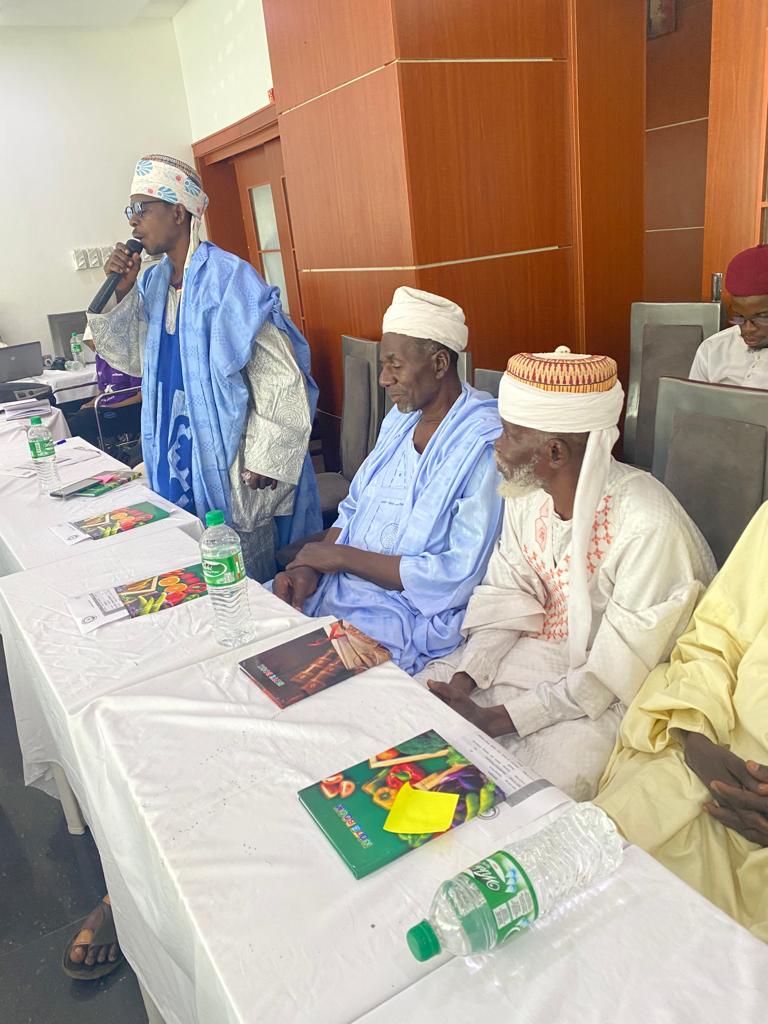
Stakeholders Engagement Meeting

The Foundation for Societal Empowerment and Rejuvenation and partner
organization has organized a day Stakeholders engagement meeting with security and
community stakeholders comprising of representatives of Police, Civil Defence
Corps, Federal Road Safety Corps, traditional/religious leaders, Community vigilante
group, National Human Right Commission, Ministry of Justice, Lawyer, Media,
women groups, youth groups, and rightsholders.
The meeting was centered on the roles of Security Agents and Citizens
in Promoting Human Rights which is a strategy to harness the roles of
stakeholders as well as strengthen participation of citizen in promoting human
rights in Bauchi.
Although Nigerian police force are constitutionally
responsible for the protection of lives and properties of the citizens but the
insecurity bedeviling the country is on the increase and it can be attributed
to several reasons, first the ratio of police currently is 1 to 737, this
number is insufficient to provide effective security services to the large
population of Nigerians and to tackle
the myriads of problems the Nigerian Police are facing such as kidnapping, human trafficking, banditry, murder, vandalization to mention
but a few. In addition, citizens themselves
in a way consciously or unconsciously contribute to the decadence obtainable in
the police force due to lack of value attached to police work which is
reflected often by recommending or sending unqualified members of
the society to join the Police Force. Also, often some of these recommended
persons from the society to join the police are most times over aged people who
cannot be easily train. The implication of having unqualified persons in the
police force will continue to pose a threat to lives or brutality to the
citizens except it is addressed.
Furthermore, there is lack of trust between the police and
the citizens, the society’s perception of the police is negative, often viewed
as corrupt, brutal, insensitive, illiterate, dirty and untrain. The police on the other hand, for example with
the End Sars experience find it difficult to trust the citizens, again, the
community sometimes hide criminals, all these continues to pose a threat to
human security and contributes to the violation of human rights.
There is the need to recruit the right people into the police
force, build trust in the security system, raised awareness for people to know
their rights, periodic town halls meetings and shared the police contact
address, and social media handles in which the police can be reached easily in
the state. The participant were further enjoined to know that human rights are natural and
universal attributed to all human. Though it is the rights of the police to protect
lives and properties as enshrined in the Nigerian Constitution and other Rights
instruments, the police alone cannot do it. Thy need the cooperation of the
citizens which begins with them knowing those rights such as right life,
freedom of movement, freedom of expression, right to liberty, right to fair
hearing, freedom from discrimination, right to privacy, right to dignity, freedom
of thought and freedom of lawful assembly and so on.
At the end participants were clustered in to four groups (CSO’s
and PWDs, Human right activist and media representative, Religious and Community
Leaders, and Security Agents) and come up with draft document and presented by
each group.
The groups presentations were collated and harmonized as a
communique at the end of the meeting with the plans of presenting to the government,
security agencies, state actors, community and religious leaders and other Civil
Society Organization.
https://voicenaija.org/Dashboard/Gallery#:~:text=24.1%20MB,6.54.49%20AM.mp4

Comments
No Comment available!